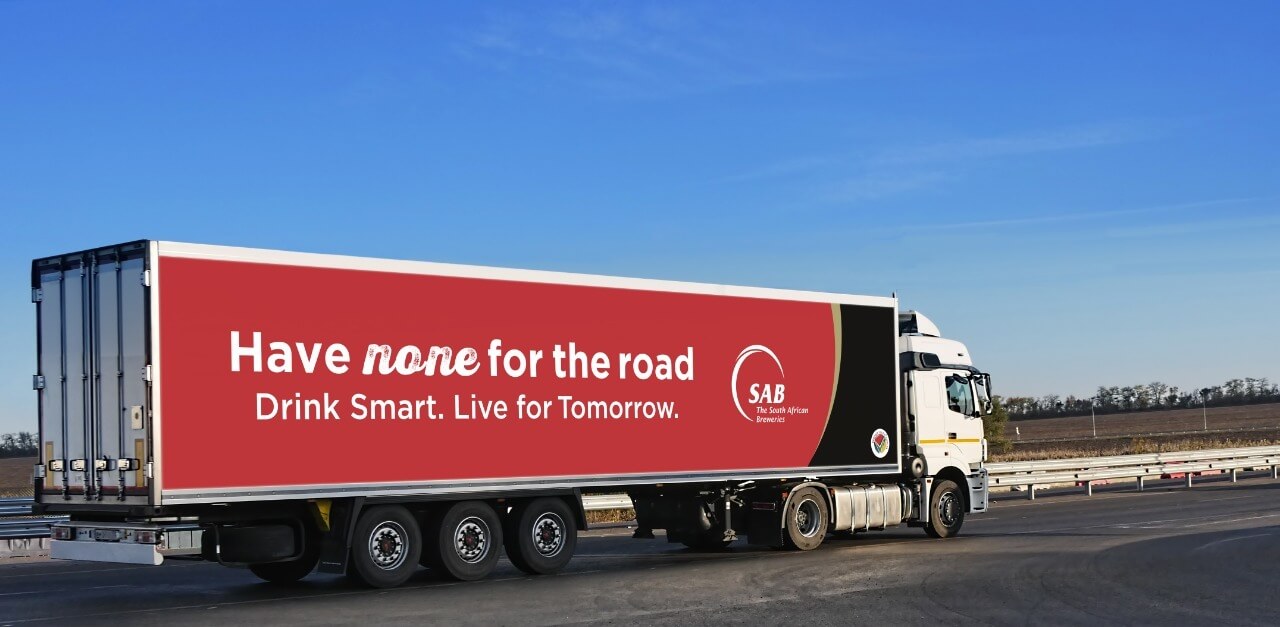SAB WORKS WITH GOVERNMENT AND COMMUNITIES TO DRIVE DOWN DRUNK DRIVING FATALITIES
In South Africa, community trumps everything. As a country, we tend to believe what’s good for one should be good for all, so we act as a united force for the greater good of our communities. Whenever a challenge arises, you can have no doubt that a community has come together to provide a collective solution.
“According to Zoleka Lisa, VP of Corporate Affairs at the South African Breweries (SAB), this is certainly the case. Between 2015 and 2017 South Africa has seen a downward trend in fatal car accidents in which an intoxicated driver was involved. According to statistics from the Road Traffic Management Corporation, there has been an overall percentage decrease in driver intoxication in fatal crashes over the last seven years. “
Why? Lisa believes it partly due to the collaboration taking place between SAB, RTMC and local authorities in which Alcohol Evidence Centres are helping authorities lay down the law and successfully prosecute more drunk drivers.
“It is only through the power of partnerships that we can get this done,” says Lisa. “While our alcohol evidence centres are working, even one drink driving fatal crash is too many, which means we need to do more.”
Over a decade ago the South African Breweries (SAB) partnered with Government to develop the concept of Alcohol Evidence Centres (AECs). Through these AECs, our authorities are given the infrastructure, equipment, and knowledge they need to make more arrests. And to build a more responsible South Africa.
With exemplary results, Lisa says more partners have meant more success. In KwaZulu-Natal, it is the RTI and Durban Metro. In Limpopo, it is the Polokwane Traffic Department. In Gauteng, it is the Johannesburg Metro Police Dept (JMPD), and in the Eastern Cape, partners include Buffalo City and Nelson Mandela Bay provincial authorities.
“Through these relationships we have also shared learnings and best practices with the Botswana Traffic law enforcement delegation with the aim of evolving our AEC project beyond borders.”
Lisa says the centres have become crucial in helping law enforcement test suspected drunk drivers and confirm their breath or blood alcohol limit using Evidentiary Breath Alcohol Testing and registered medical practitioners. Following that, the AECs are all fully equipped to also ensure the evidence is properly collected and made admissible in court.
One only needs to look at the AEC we handed over in Pietermaritzburg to get a true sense of the success, this in partnership with the KwaZulu-Natal Department of Transport. In April 2020 this area experienced 44% reduction in road fatalities, 1500 arrests and 422 successful prosecutions.
Today, ten of these centres have been established across the country, making a remarkable difference to local policing. Lisa says SAB aims to handover and evolve AECs with another 10 mobile structures by October Transport Month with the aim of 50 AECs by the end of 2025.
In partnership with traffic law enforcement these AECs are to deliver impact in prosecutions and ensuring a strong presence in hotspot areas guided by the Ministerial data shared publicly during the Easter and festive period.
JMPD Acting Chief Supt. Mike Botolo believes this partnership with SAB is a critical example of how the partnerships can make a difference.
“We are willing to join hands with anybody who is able to help us make the streets safer for all citizens. These AECs are clearly working, and we hope to see the same success in Soweto over the coming year,” says Botolo.
Lisa believes SAB is an organisation that understands the role it plays in this crisis, but more importantly, the impact it can have in building a stronger and more responsible society. To combat drinking and driving in South Africa, Lisa is calling for more support.
“We call on all other sectors to get involved. There are many that can benefit from less accidents on the road all the way from insurance to healthcare and beyond. We are all responsible for South Africa’s future and if there’s one thing our history has taught us, it’s that change can only come from collective action,” concludes Lisa.

